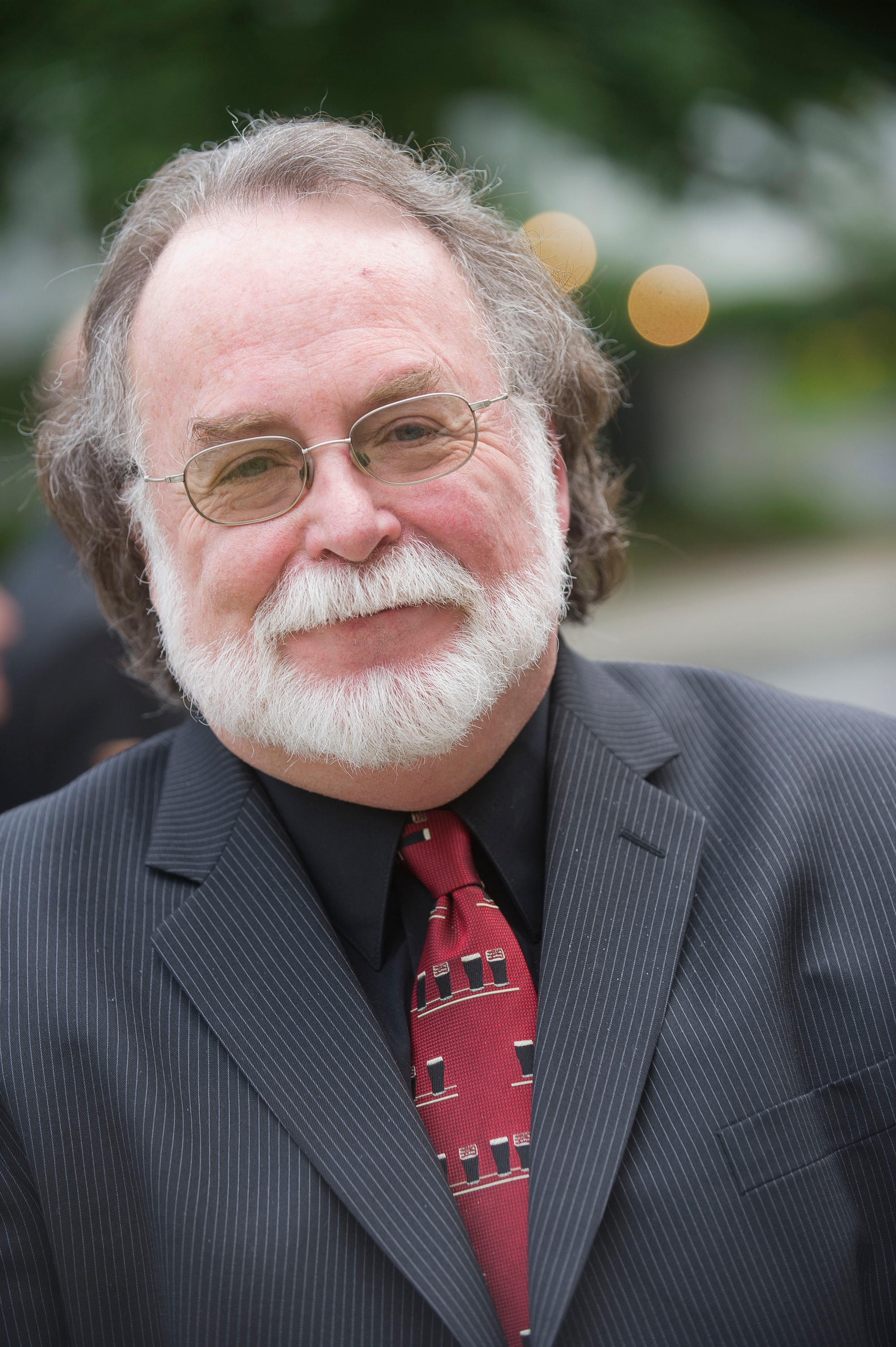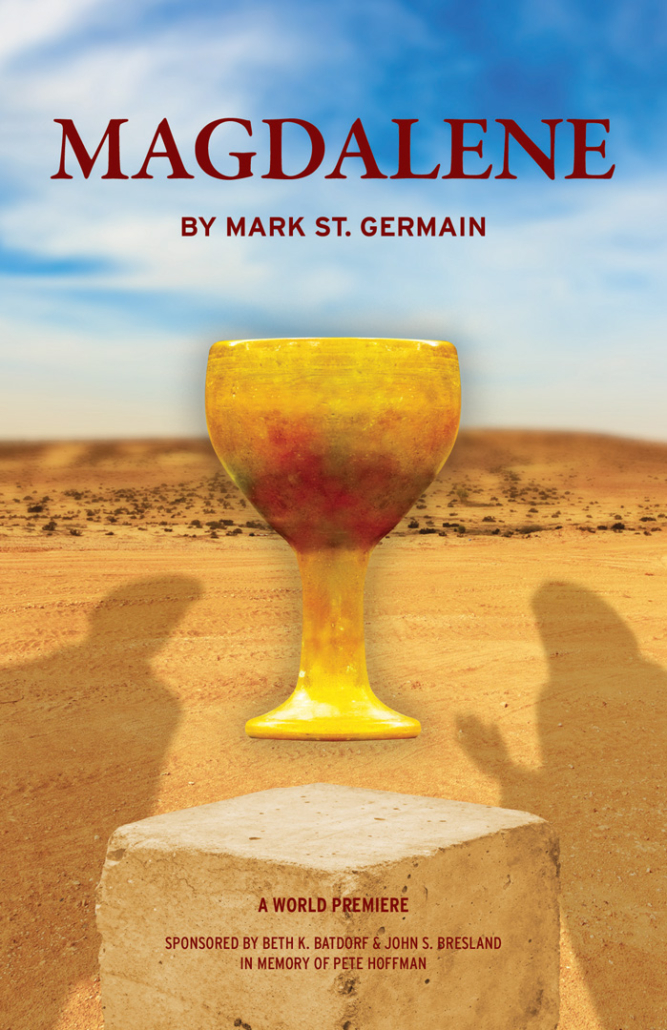Meet Mark St. Germain
Mark St. Germain has written the plays Freud’s Last Session (Off Broadway Alliance Award), Forgiving Typhoid Mary (Time Magazine’s “Year’s Ten Best”), Becoming Dr. Ruth, and Scott and Hem in the Garden of Allah. With Randy Courts, he has written the musicals The Gifts of the Magi, Johnny Pye and the Fool Killer, and Jack’s Holiday. Mark’s musical Stand by Your Man, The Tammy Wynette Story was created for Nashville’s Ryman Theater. His play The God Committee has been made into a film with the same name. He directed and produced the documentary My Dog, An Unconditional Love Story featuring Richard Gere and Glenn Close, among others. Television credits include The Cosby Show and Dick Wolf’s Crime and Punishment. His books include the comedic memoir Walking Evil and the thriller The Mirror Man. He is a member of the Dramatists Guild, the Writers Guild of America East, and an Associate Artist at the Barrington Stage Company. Barrington Stage named their second stage “The St. Germain Stage.”
Interview with the Playwright
Conducted and edited by Sharon J. Anderson
CATF: You have said that you like to write about historical figures because you “love the idea of spending time with fascinating people.” And you described your play about a conversation between C.S. Lewis and Freud as “a schizophrenic ping-pong match . . .” Is this what is going on between Mary and Peter in this play?
MSG: In terms of “ping pong,” yes. I have to put myself in both of their heads. It can be difficult when you believe that one person is more on track than the other. So, you have to try to keep them as evenly matched as far as possible. I think it’s pretty obvious in the play who I think is more on track.
You have said, “Anybody that I am interested in has to be inspirational in these times we live in.” What are those times?
The times that we live in are certainly darker to me than they have been. We’re in an age where a play like this could have little likelihood of being done because more people might think that it’s controversial. For example, it’s not something that could play in the Kennedy Center right now.
What’s fascinating about Mary Magdalene to you?
I think she was “mansplained” forever, and mansplained away so she didn’t exist. Then, when she did pop her head up, she was a prostitute. That was a way that men could have power over her. It’s very clear in the Bible that she was the person who had money to help out Christ and the apostles. She seems to be explaining things – and I’m not talking about just the canonical gospels, but also the Gnostic gospels. She always explains things to people, and when I read through the Bible while researching this, the amount of times Christ has to stop and explain himself at least twice is amazing. He has to argue with people. With Mary Magdalene, he didn’t have to do that every time he had a statement. The disciples don’t seem to have a clue.
In your play, Peter comes to apologize to Mary; to ask for forgiveness.
Peter may have had some political reasons for doing this. Here is somebody [Paul] coming into the apostle camp saying, “I’m an apostle and Christ made me one when I was struck off my horse by lightning, and now I’m going to make a big difference here.” The first thing the disciples did was send him out of Jerusalem, so I think from then on, Peter was very worried about his place. So, visiting Mary would be a logical way for him to get a stamp of approval. Even if all of the disciples were all behind him — which I imagined they might be – he knew that if he had that little “check mark” next to his name, it would be better for him.
What did you know about Mary and Peter before you wrote this play?
I went to Christian grammar school, high school, college, and graduate school. I had some training with the Christian Brothers, who were dedicated to education.
What triggered your writing of this play?
As early as grammar school, I remember thinking, “Why aren’t women priests? It really doesn’t make any sense.” Of course, there is never a logical reason for it. What cemented it for me was when my daughter was born – she’s 38 now – it became a personal issue to me. How dare you tell me that my daughter can’t be a priest? Should she want to, she would be wonderful. The inequity was there. A group of men was not going to be happy with somebody like Mary, whom Christ obviously adored, so they told and approved their own stories.
Mary finds Peter irritating, exasperating, and basically believes that he and the disciples had, as you said, no clue about Jesus. Is her antagonism towards Peter an expression of your antagonism towards the current “organized” Christian faith and maybe all organized faiths?
I don’t think it’s an active antagonism, but I certainly have the beliefs that Mary has, so yes, I share her frustration. I would be the squeaky wheel in the church if I was part of it because I am so unhappy with so much of it.
In Magdalene, Mary says, “Faith isn’t faith, Peter until it’s stronger than your doubt.”
I always have some doubt in everything.
How does it help you?
It doesn’t help or hurt. It is, however, an annoyance.
Eliza Griswold, in a New Yorker article (4/19/25) entitled, “Mistaking Mary Magdalene” describes Mary as the patron of outcasts who embodies uncertainty.
I’m not certain what they meant by uncertainty. “The patron of outcasts” – absolutely. I think Mary became very single-focused. If she was interested in being part of the church franchise, she could have had her own followers, but she never made that effort. She never made an active play for developing her stream of Christianity, so she just went on believing what she believed.
At the beginning of your play, you describe Mary as a woman who’s known great love and great tragedy. The “great love” is . . . and the “great tragedy” is . . .
Her great love is her love of Christ, and her great tragedy is to be there and watch him die in front of her eyes.
You describe Peter as an ordinary man struggling to fulfill extraordinary expectations; what extraordinary expectations?
Expectations that he was going to be able in any way to be a successor of Christ on earth. I don’t know what Jesus had in mind when he talked about his church and how literal he was. If you always took your marching orders from Christ and all of a sudden, you’re taking them from Peter, it’s a little less dramatic and more challenging for an ordinary man.
About Jesus and money, Mary says this in your play: “He never wanted a building or even a “home.” A home is an anchor – it becomes as needy as a child. You have to care for it with time and monies that can be better spent on real children and people just as needy. How can you ask money from the people who don’t have it?”
The amount of treasures that the Vatican has even in its basement is obscene. I remember taking a tour and being told very proudly, “Oh, this is all nothing. There is so much more in storage.” I thought, “Why so much in storage? Why can’t things be sold? Why can’t you make something good out of them?” Once the church ties itself to a place, it is then responsible for the upkeep of the place and to make the place grander and grander and grander, you need more and more money, and where does it come from? Usually from the people who don’t have it.
In your play, Mary tells Peter that women and men now work as equals and the voices of women are welcome in leadership.
That’s in the play, but I don’t see it happening today.
What is truth?
Truth has to be an accurate representation or idea that is above challenge.
Why do you think Pontius Pilate asked Jesus that question?
I think he asked it to pass the buck. It was his way of saying, “Get him out of my house and take him somewhere else.”
Emily Dickinson said, “Tell the truth but tell it slant.”
Isn’t that great? It’s subversive, and I think that’s what humor does, too. I hope that in this play, I’m telling the truth but telling it slant.
What kind of conversations do you want audience members to have after seeing this play?
The conversations will be different based on how versed they are in the biblical characters. I had two large readings, and one was with a predominantly Jewish audience that really went well. They didn’t know a lot of these stories, but were accepting of it. I haven’t gotten any direct antagonism, but it’s only a start. Who knows what will happen? But I do stand behind Mary’s beliefs in this play.
What do you think of this line – a recurring theme — from Samuel Beckett’s novel, The Unnamable: “Words are all we have.”
Words are our only way of communicating our thoughts and feelings to another person; the only way to listen to them and get their thoughts and feelings. It does make two-way communication possible, otherwise life is a monologue. But in terms of words as answers . . . can anyone make a pronouncement on what life should be or if there is an afterlife? Or what I can do to lead a good life? It’s not something somebody can fully answer. Sometimes words aren’t there and, in many cases, they should be deeds anyway.


